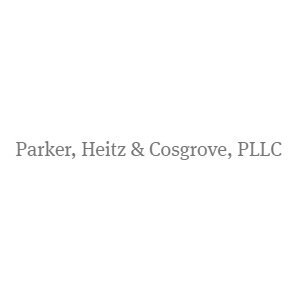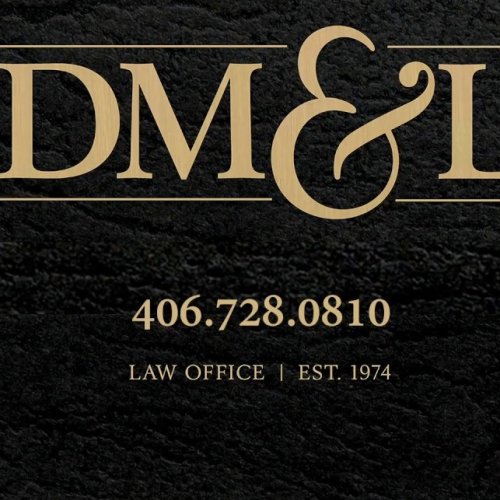Best Truck Accident Lawyers in Montana
Share your needs with us, get contacted by law firms.
Free. Takes 2 min.
Or refine your search by selecting a city:
List of the best lawyers in Montana, United States
About Truck Accident Law in Montana, United States
Truck accidents involve collisions or incidents with large commercial vehicles such as semi-trucks, tractor-trailers, and delivery trucks. In Montana, these incidents can result in serious injuries, property damage, or fatalities due to the size and weight of trucks. Truck accident law in Montana includes federal and state regulations that govern commercial trucking operations, driver behavior, liability, and insurance requirements. Understanding these laws is important for both truck drivers and victims seeking compensation after an accident.
Why You May Need a Lawyer
Truck accident cases are often more complex than typical car accidents. Victims may require legal help for several reasons:
- Determining fault can involve multiple parties, such as trucking companies, drivers, manufacturers, or cargo loaders.
- Commercial trucking companies and their insurers employ teams of lawyers to limit liability.
- Federal regulations, such as hours-of-service rules and maintenance requirements, add additional layers of complexity.
- Victims often face significant injuries, leading to larger medical bills and damages.
- Negotiating a fair settlement or proving negligence in court may require expert testimony and thorough investigation.
Local Laws Overview
Truck accident law in Montana is governed by a combination of federal regulations and specific state laws:
- Montana follows a comparative negligence system, where fault is apportioned among parties and compensation is reduced by your percentage of fault.
- The statute of limitations for filing a personal injury claim after a truck accident is generally three years from the date of the incident.
- Montana law requires commercial trucks to carry higher minimum insurance coverage than standard passenger vehicles.
- Drivers must adhere to rules on hours of service, load limits, and mandatory rest periods, regulated by both federal and state transportation departments.
- Trucking companies have legal obligations for vehicle maintenance records, substance abuse testing, and proper hiring and training of drivers.
Frequently Asked Questions
What should I do immediately after a truck accident in Montana?
If you are involved in a truck accident, ensure your safety and seek medical attention for any injuries. Report the accident to local law enforcement, document the scene with photos and notes, collect witness information, and avoid discussing fault at the scene.
Who can be held liable for a truck accident in Montana?
Liability may fall on the truck driver, trucking company, cargo loader, manufacturer of faulty parts, or even government entities if road conditions contributed. An investigation will determine which party or parties are responsible.
What compensation can I recover after a truck accident?
You may recover damages for medical expenses, lost wages, property damage, pain and suffering, and other losses. In cases of gross negligence, punitive damages may also be awarded.
How is fault determined in a Montana truck accident?
Fault is determined by investigating the evidence, police reports, witness statements, and, when necessary, accident reconstruction experts. Montana’s comparative negligence rule may affect your compensation if you share any fault.
How long do I have to file a claim after a truck accident?
In Montana, you generally have three years from the date of the accident to file a personal injury claim. Failure to file within this period may result in losing your right to compensation.
What if the truck driver was working for a company during the accident?
If the driver was acting within the scope of employment, the trucking company may be held liable under the theory of vicarious liability.
Are there special insurance requirements for commercial trucks in Montana?
Yes, commercial trucks must carry higher amounts of liability insurance, often mandated by both federal and state law, to cover potential damages from serious accidents.
Can I still recover damages if I am partially at fault for the accident?
Yes, under Montana’s comparative negligence law, you may recover damages as long as you are less than 51 percent at fault. The amount will be reduced by your percentage of fault.
Should I speak with the trucking company’s insurance adjuster?
It is advisable to consult with a lawyer before speaking to an insurance adjuster. Anything you say can be used to reduce or deny your claim.
What evidence should I gather after a truck accident?
Collect police reports, photos of the scene and vehicles, witness contact information, medical records, repair estimates, and any correspondence with insurance companies.
Additional Resources
If you need more information or assistance, consider reaching out to these organizations and agencies:
- Montana Department of Transportation (MDT)
- Montana Highway Patrol
- Federal Motor Carrier Safety Administration (FMCSA)
- Montana State Bar Association
- National Highway Traffic Safety Administration (NHTSA)
- Local legal aid clinics and nonprofit organizations offering legal assistance
Next Steps
If you or a loved one has been involved in a truck accident in Montana, here are practical steps you should take:
- Seek prompt medical attention, even if injuries seem minor.
- Document everything related to the accident, including injuries, damages, and expenses.
- Notify your insurance company but avoid giving a formal statement until you consult with a lawyer.
- Contact a qualified truck accident lawyer in Montana who is familiar with both state and federal regulations.
- Consult with your attorney before signing any documents or accepting settlements.
Lawzana helps you find the best lawyers and law firms in Montana through a curated and pre-screened list of qualified legal professionals. Our platform offers rankings and detailed profiles of attorneys and law firms, allowing you to compare based on practice areas, including Truck Accident, experience, and client feedback.
Each profile includes a description of the firm's areas of practice, client reviews, team members and partners, year of establishment, spoken languages, office locations, contact information, social media presence, and any published articles or resources. Most firms on our platform speak English and are experienced in both local and international legal matters.
Get a quote from top-rated law firms in Montana, United States — quickly, securely, and without unnecessary hassle.
Disclaimer:
The information provided on this page is for general informational purposes only and does not constitute legal advice. While we strive to ensure the accuracy and relevance of the content, legal information may change over time, and interpretations of the law can vary. You should always consult with a qualified legal professional for advice specific to your situation.
We disclaim all liability for actions taken or not taken based on the content of this page. If you believe any information is incorrect or outdated, please contact us, and we will review and update it where appropriate.
Browse truck accident law firms by city in Montana
Refine your search by selecting a city.











